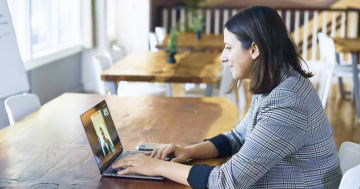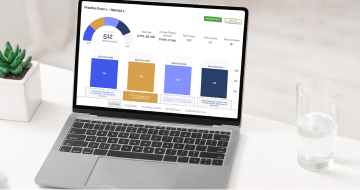Overconfidence vs Underconfidence Effect
MCAT Psychology - Chapter 2- Section 4 - Cognition - Intelligence & Problem-Solving
- Home
- »
- MCAT Masterclass
- »
- Psychological, Social, and Biological Foundations of Behavior
- »
- Psychology
- »
- Cognition
- »
- Intelligence and Problem-Solving
- »
- Overconfidence vs Underconfidence Effect – MCAT Psychology
Sample MCAT Question - Overconfidence vs Underconfidence Effect
Which of the following situations best depicts overestimation?
a) A lawyer tells their client that the case will likely conclude in their favor in two weeks. The trial ends up lasting three months.
b) A student bets their lunch money that the bus will come at exactly 7:35 am. The bus arrives at 7:37 am.
c) A medical school student believes that they are first in their class. Rankings show the student is 5th.
d) An office employee overestimates the amount of time it will take them to finish a task. In reality, the employee finishes the task well before the deadline.
A is correct. The overconfidence effect is divided into 3 tendencies: Overestimation, overplacement, and overprecision. Overestimation is the tendency to overestimate how quickly or how well one can finish a task. A lawyer predicting they can resolve a case in two weeks when it actually takes three months is an example of overestimation. B is incorrect and example of overprecision. Overprecision is the tendency to be excessively certain in the accuracy of one’s beliefs; a student betting that the bus will come at a specific time is an example of overprecision. C is incorrect and an example of overplacement. Overplacement is the tendency to rank ourselves as performing better than others and is different from overestimation. D is incorrect and is an example of underestimation. The office employee overestimates the amount of time they will need to finish a task because they underestimate their ability to complete it on time.,
Conciousness-Altering Drugs
Get 1-on-1 MCAT Tutoring From a Specialist
With MCAT tutoring from MedSchoolCoach, we are committed to help you prepare, excel, and optimize your ideal score on the MCAT exam.
For each student we work with, we learn about their learning style, content knowledge, and goals. We match them with the most suitable tutor and conduct online sessions that make them feel as if they are in the classroom. Each session is recorded, plus with access to whiteboard notes. We focus on high-yield topics if you’re pressed for time. If you have more time or high-score goals, we meticulously cover the entire MCAT syllabus.
Overconfidence vs Underconfidence Effect for the MCAT
Overconfidence and underconfidence are two cognitive biases that significantly impact decision-making and self-perception. These psychological phenomena highlight the ways in which individuals’ assessments of their abilities and judgments can be skewed, often leading to suboptimal outcomes. Overconfidence refers to an inflated sense of one’s own skills, knowledge, or prospects, leading individuals to overestimate their abilities and underestimate potential risks. On the other hand, underconfidence entails a lack of faith in one’s capabilities, resulting in individuals undervaluing their skills and potential for success. Both overconfidence and underconfidence can have profound implications in various domains, including personal relationships, professional endeavors, and financial decision-making. Understanding these biases and their consequences is crucial for cultivating accurate self-assessment and making more informed choices.
Overconfidence Effect
The overconfidence effect can be subdivided into three tendencies: overestimation, overplacement, and overprecision.
Overestimation is the tendency to overestimate one’s ability to complete a task. In other words, you think that you’re better at completing a task than you actually are. For example, say a student completes a test and they think they score 90% when they actually scored 70%.
Next, overplacement is the tendency to believe that one’s performance is better than others. In terms of overplacement, you need to think about ranks. When employing overplacement, you’re ranking your ability compared to others and ranking yourself too high in your ability to complete a task compared to others. For example, say a student believes they have the top grade in their class, but in reality they actually are in the bottom half of the class. This is overplacement.
Finally, we have overprecision. This is the tendency to be excessively certain in the accuracy of one’s beliefs. This means that there are some beliefs that you hold in which you are actually too confident that they are correct. For example, a student is 90% confident that everyone in the class passed the exam when, in reality, 20% of the students failed. This student’s confidence was too high and they should not have been that confident in their belief that everyone passed because, after all, 20% of the students failed. That’s the overconfidence effect.
Underconfidence Effect
Now let’s discuss the underconfidence effect. The underconfidence effect is the opposite of the overconfidence effect. However, there are only two types of underconfidence: underestimation and underplacement.
Underestimation is the tendency to underestimate one’s ability to complete a task, so you think you’re worse at a task than you actually are. For example, a student overestimates the amount of time it will take them to complete an easy homework assignment. Now, this may sound confusing because the word “overestimates” is used here, but think about it. If this is an easy homework assignment that only takes five minutes to do, but the student estimates that it would take them 30 minutes to complete it, they have overestimated the amount of time it would take for them to complete this easy task. And the reason why they overestimated the time is because they underestimated their ability to complete the task.
Next, underplacement is the tendency to believe that one’s performance is worse than others. So when ranking your ability to complete a task, you rank yourself lower than your actual ranking. For example, a student believes that they are worse than most people at a difficult task, like juggling. This is pretty common, right? Say that you’re asked about your juggling skills, but you have no juggling abilities. Because of your inability to juggle, you think you’re worse at juggling than most people. Well, the reality is that most people don’t know how to juggle, so you’re not actually worse at juggling than most other people. So because of this, you have ranked yourself lower in your ability to juggle than what your actual ranking is.
Explore More MCAT Masterclass Chapters
Take a closer look at our entire MCAT Masterclass or explore our Biochemistry lessons below.

One-on-One Tutoring
Are you ready to take your MCAT performance to a whole new level? Work with our 99th-percentile MCAT tutors to boost your score by 12 points or more!
See if MCAT Tutoring can help me
Talk to our enrollment team about MCAT Tutoring

MCAT Go Audio Course
Engaging audio learning to take your MCAT learning on the go, any time, any where. You'll be on the way to a higher MCAT score no matter where you are. Listen to over 200+ lessons.

MCAT Practice Exams
Practice makes perfect! Our mock exams coupled with thorough explanations and in-depth analytics help students understand exactly where they stand.

MCAT Prep App
Access hundreds of MCAT videos to help you study and raise your exam score. Augment your learning with expert-created flashcards and a question banks.
